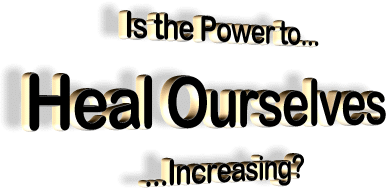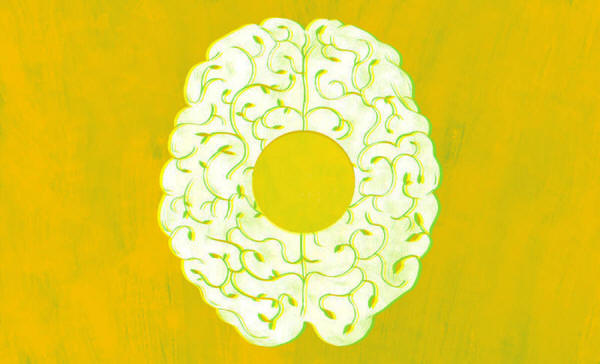Esto ha escrito en "Benjaminfulfordcastellano" el comentarista "Dagonse, y me ha resonado positivamente a razi de lo que he leido anteriormente de autores serios: "En todo el cacao de conspiración, hemos de tener claro que: ni son todos los que están, ni están todos los que son.
Adam Weishaupt, fue expulsado de los Jesuitas y fue entonces cuando puso sus conocimientos al servicio de ese pretendido NOM masónico que figura en el dólar.
Tal como avanzó la masonería con sus revoluciones por Sudamérica contra el. Imperio Español, creando la Leyenda Negra, se fue expoliando y expulsando a los Jesuitas que protegían a los indígenas y sus derechos, por consiguiente NO ERAN los Jesuitas los malos, ni lo son, aunque en sus filas puedan haber elementos corruptos, que los hay, como en todas las grandes organizaciones.
Las Órdenes Religiosas, son las que hicieron retornar a la Iglesia de Roma, al cristianismo.
El imperialismo de Roma, quiso adoptar el cristianismo, a su medida, debido a su gran expansión. El mensaje de Jesús, era un mensaje de AMOR y Paz, en unos tiempos en que no habían derechos humanos y por eso caló en la sociedad oprimida.
En aquellos tiempos, de una ignorancia supina, la interpretación del Amor predicado por Jesús, era interpretado por la gente como Amor y esperanza, lo cual les daba la Paz interior.
Al querer imponer el control de la religión desde el estado, Roma, estableciendo ritos y dogmas a su medida, se produjo la división del imperio romano, de Oriente y Occidente.
La gran mayoría de cristianos eran Unitarios en sus diversas ramificaciones, arrianos, albigenses, cátaros etc y CONTRA ELLOS se realizó el exterminio e incluso la 1a Cruzada.
En España, fue en el Concilio de Mérida del año 666 que se establece como dogma de fe el Tribitarismo de Roma. Pero Abdelraman II en el apoyo 844 seguía convocando Concilios donde se debatía entre el Tribitarismo y el Unitarismo, nombrándose que hay otras confesiones como el Judaísmo; ni una palabra acerca del Islam.
Fue San Eulogio de Córdoba quién en el año 842, descubrió en el monasterio de Leire, en Navarra, el primer documento que habla de Mahoma y se llevó tal susto, que envió cartas urgentes a sus familiares y amigos en Córdoba, avisando que ya había nacido la Bestia del Apocalipsis.
Si San Eulogio de Córdoba no sabe quién es Mahoma en el año 842 y Abdelraman II de Córdoba tampoco sabe que es el Islam, es porque NUNCA nos invadió el Islam ni los Árabes en el año 711, de lo contrario, con las oraciones públicas 5 veces al día, todos sabrían que era el Islam. Pero el Corán no se compiló hasta el 950, y no existiendo un cuerpo jurídico religioso uniforme, no se expandió belicosa mente hasta esa fecha.
El Rey Tariq que cruzó el estrecho, era un rey Godo y por consiguiente Arriano, pues en el actual Marruecos, que era parte de la Mauritania que estaba dentro de los provincia romana de Hispania, habían más de 435 diócesis cristianas arrianas. Los Vándalos eran arrianos y recibieron del Imperio Romano las tierras del norte de África para su defensa desde Túnez a Marruecos y cuando en el 711 cruzaron el estrecho fue para ayudar a otros reyes arrianos y por eso avanzaron casi sin resistencia hasta la Septimania en el sur de Francia y se denominó a todas estas tierras Vandaluci de Vándalos, que pusteriormente se denominará Andaluci, Al Andalus, Andalucia.
Si las ideologías son difíciles de cambiar, las creencias lo son más. Por esta circunstancia es que la Reconquista duro 8 siglos.
Tras el exterminio de Cátaros y Albigenses, y durante el mismo, es que se empiezan a crear diversas Órdenes Religiosas que por las circunstancias de la época, muchas de ellas son Militares, reconociendo el Poder del Papa, pero con sus propias reglas dentro del auténtico cristianismo. Son las Órdenes Religiosas las que acabarán devolviendo a Roma al cristianismo, pero con infiltrados de todo tipo
Actualmente hay unos 400.000 religiosos de diferentes Órdenes Católicas, en Orfanatos, escuelas, escuelas profesionales, universidades, asilos, hospitales etc y lo hacen porque creen en ese Dios de Amor del cristianismo.
A mediados del siglo XIX quiebra el Vaticano y Rothchild asume el control económico, tomando como garantía los tesoros del Vaticano. Pero esa banca Vaticana, el IOR o Instituto de Órdenes Religiosas, está gestionando por la Logia Masónica P2
No hay una Conspiración Jesuita, si que la hay Masónica.
Dicen que Francia es libre y democrática, eesdecka Revolución Francesa, donde la masonería tardó 46 años, en tomar los puestos claves vpsra hacer una revolución de color sin Twitter ni redes sociales? El pueblo saliendo a la calle espontáneamente y derrotando a uno de los ejércitos más fuertes y poderosos del mundo, como demostraría Napoleón? Anda ya, eejemonos de historietas.
Cuando los países de Sudamérica de independizaron de España, había casi 200.000 estudiantes universitarios en universidades públicas gestionadas casi siempre por Órdenes Religiosas; en Brasil o Canadá o EEUU no había NI UNA.
España y las órdenes religiosas fueron las impulsoras ee los derechos humanos en todo el mundo; lis Reyes Católicos en 1514 otorgaron el derecho de ciudadanía a los indígenas en América PROHIBIENDO la conversión forzosa. El Tribunal Supremo de los EEUU dictaminó en 1886, que los indígenas eran extranjeros en su propia tierra. Y no fue hasta el 1923 que a los indios se les reconoció el derecho de ciudadanía en los EEUU..
No son los Jesuitas los que conspiran, pero tras tantos siglos sucumbiendo, siempre los cristianos, a manos de esos poderes fácticos que gobiernan el mundo, se ven obligados a trabajar en secreto de forma muy discreta.
La expulsión de los Jesuitas de España y de los países de Sudamérica condujo a la falta de ética y eliminación de los derechos de indígenas y población en general, con las incautaciones de territorio para esa élite masónica y bancaria mundial.
Hay que profundizar en los análisis."
Translate
8 de julio de 2018
Is the power to heal ourselves increasing? sanity
by Jacob Devaney October 26, 2015
from UpLiftConnect Website
from UpLiftConnect Website
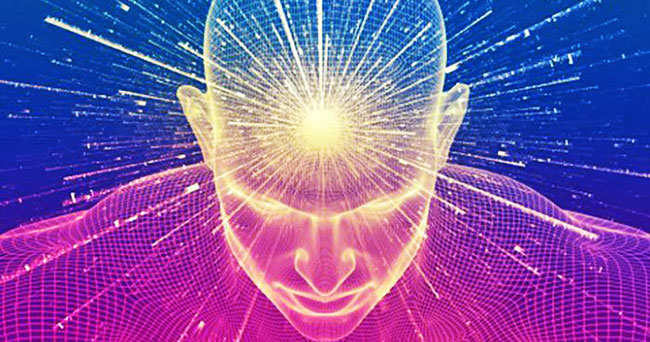
New studies are showing
that placebos are becoming
more effective in treating illness.
Researchers are perplexed by recent studies that have placebos performing very well compared to new and experimental pharmaceuticals.
Meanwhile the science ofPsychoneuroimmunology (PNI) is echoing what mystics and shaman have been saying forever which is that,
we have untold powers to heal ourselves!
Spirit and science converging
This coming together between the spiritual and scientific communities shows an unprecedented opportunity for humans to embrace vibrant, healthy, thriving lives.
Recent research on placebos (Increasing Placebo Responses over Time in U.S. Clinical Trials of Neuropathic Pain) comes from a McGill University and is published in Pain, the Journal of the International Association for the Study of Pain.
I first learned about this in a wonderful article by Carolyn Gregoire in Huffington Post titled, Placebo Effect Puzzle has Scientists Scratching their Heads.
I highly recommend reading the entire article which shows how the placebo effect is exploding in the United States, but nowhere else.
This may have something to do with the fact that the United States has 5% of the worlds population yet consumes 75% of the worlds prescription drugs.

The 'sugar pill' is working
The analysis revealed that in U.S. trials conducted in 1993, pain medications were rated to be an average of 27 percent more effective than placebo pills.In the 2013 trials, however, the pain medication was only 9 percent more effective than the placebo. The difference wasn't attributed to decreased effectiveness of the medication, but instead to a greater response to the placebo.In other words, the sugar pill has become nearly as effective as medication in alleviating pain.Carolyn GregoirePlacebo Effect Puzzle Has Scientists Scratching Their Heads
The above study focused on pain-killers, but similar results have been observed for anti-depressants.
With more than 1 in 5 Americans taking mental health drugs the number of people seeking alternatives and preventative measures continues to grow.
Yoga, meditation, healthy diet, and exercise do not come in the form of a pill but tend to address the larger picture of wellbeing that is too often overlooked by the medical establishment.
Although placebo may not be a viable treatment option, there are other treatments that on average work as well as antidepressants, [such as] physical exercise and cognitive behavioral psychotherapy.As far as we know, these alternatives don't make people worse.Irving Kirsch
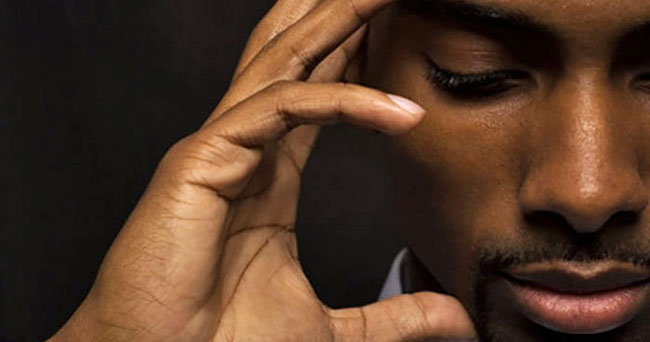
Tuning into our trauma
All of this points to the innate ability our bodies have to self-regulate, seek balance (homeostasis), and heal.
You would think that we would be eager to listen to our own bodies when they speak to us through symptoms, yet we usually do the exact opposite by numbing the pain or ignoring what we feel.
Peter Levine, author of Waking the Tiger, is an expert in trauma resolution and a lead voice in field of Somatic Experiencing, which invites us to tune in to our bodies as well as our emotions in order to reclaim our health.
Through hundreds of hours of client sessions, Levine began to witness how clients' bodies told their stories of trauma, even if the clients had no specific memories.
Once Levine guided them into the sensate experience of trauma, the body then took over and finished what was unprocessed, or incomplete.
Clients receive the added gifts of increased body awareness, a stronger connection to self, a shift in deep-seated patterns, a more regulated nervous system, and a sense of mastery.
Why do humans need to be guided at all? The biggest obstacle is how inattentive and unfamiliar we are with our physical sensations.Our big, sophisticated brains constantly out-think and override our bodily needs. We are trained to ignore signs of hunger, pain, discomfort, injury, danger, as well as pleasure, saturation, and fulfillment.What's astonishing is how forgiving and responsive the body is. As soon as we tune into it, shifts begin to happen.
Peter Levine speaks
about Somatic Experiencing
Prescription of the future
The mind, our beliefs, emotions, and lifestyle play a much larger role in our wellbeing than we tend to recognize.
While researchers are wondering how to avoid the dreaded monkey-wrench of the placebo effect in testing new drugs, the general public is recognizing that taking charge of ones health doesn't need to always start with a call to the doctor or a new prescription.
As Carolyn Gregoire underscores in her Huffington Post article (Placebo Effect Puzzle Has Scientists Scratching Their Heads),
“If the placebo effect continues on its current trajectory, American pharmaceutical companies may find it increasingly difficult to get consumers to buy new drugs.”By learning the body-mind language of symptoms and illness you can learn what is being repressed or ignored in your psyche and emotions and the affect this is having on your physical body.Deb Shapiro
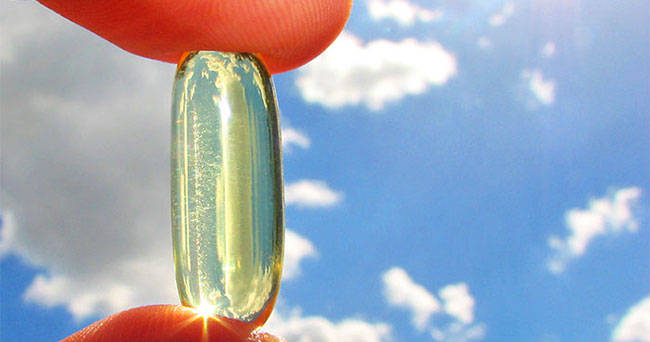
Placebos are showing us
we have the power to heal ourselves
Popular books like 'Your Body Speaks Your Mind'are a significant indicator that a new paradigm in health is upon us.
Science and spirituality, like the brain and body have lots to gain by embracing the wisdom that the other has to share. We are evolved enough to know that the answers we seek aren't always either/or.
A balanced and holistic approach is a prescription for wellbeing.
So keep your doctors number close by but also take the power of your health into your own hands. Your body will thank you for listening to it, your emotions will release freely when they feel welcome and your quality of life will increase.
Placebos may not be the miracle cure after all, but what they might be showing us is that we already possess an untold capacity for self-healing...
Está aumentando el poder de curarnos a nosotros mismos?

por Jacob Devaney 26 Octubre 2015
del Sitio Web UpLiftConnect
del Sitio Web UpLiftConnect
traducción de Adela KaufmannVersión original en ingles

Nuevos estudios están mostrando
que los placebos se están volviendo
más efectivo en el tratamiento de enfermedades.
Los investigadores están perplejos por los estudios recientes, que tienen placebos que funcionan muy bien en comparación con los productos farmacéuticos nuevos y experimentales.
Mientras tanto, la ciencia de la Psiconeuroinmunología (PNI) está haciendo eco de lo que los místicos y los chamanes han estado diciendo para siempre:
¡que tenemos poderes incalculables para curarnos a nosotros mismos!
El Espíritu y la Ciencia están convergiendo
Esta unión entre las comunidades espiritual y científica muestra una oportunidad sin precedentes para que los humanos adopten vidas vibrantes, saludables y prósperas.
La investigación reciente sobre los placebos (Increasing Placebo Responses over Time in U.S. Clinical Trials of Neuropathic Pain) proviene de una Universidad McGill y se publica en Pain, la revista de la Asociación Internacional para el Estudio del Dolor.
La primera vez que supe esto fue en un maravilloso artículo de Carolyn Gregoire en el Huffington Post, titulado Placebo Effect Puzzle has Scientists Scratching their Heads.
Recomiendo leer el artículo completo, que muestra cómo el efecto placebo está explotando en los Estados Unidos, pero en ningún otro lugar.
Esto puede tener algo que ver con el hecho de que Estados Unidos tiene el 5% de la población mundial y aún consume el 75% de los medicamentos recetados del mundo.

La 'píldora de azúcar' está funcionando
El análisis reveló que en los ensayos de EE.UU. realizados en 1993, los medicamentos contra el dolor se calificaron como un promedio de 27 por ciento más efectivo que las píldoras de placebo.En los ensayos de 2013, sin embargo, el medicamento para el dolor fue solo un 9 por ciento más efectivo que el placebo. La diferencia no se atribuyó a la disminución de la efectividad de la medicación, sino a una mayor respuesta al placebo.En otras palabras, la píldora de azúcar se ha vuelto casi tan efectiva como la medicación para aliviar el dolor.Carolyn GregoireEl Enigma del efecto Placebo tiene científicos rascándose la cabeza
El estudio anterior se centró en los analgésicos, pero se han observado resultados similares para los antidepresivos.
Con más de 1 de cada 5 estadounidenses tomando medicamentos para la salud mental, la cantidad de personas que buscan alternativas y medidas preventivas continúa creciendo.
El yoga, la meditación, la dieta saludable y el ejercicio no se presentan en forma de píldora, sino que tienden a abordar la imagen más amplia del bienestar que el establecimiento médico suele pasar por alto.
Aunque el placebo puede no ser una opción de tratamiento viable, existen otros tratamientos que en promedio funcionan tan bien como los antidepresivos, [como] el ejercicio físico y la psicoterapia cognitiva conductual.Hasta donde sabemos, estas alternativas no empeoran las personas.Irving Kirsch

Sintonizando con nuestro trauma
Todo esto apunta a la habilidad innata que nuestro cuerpo tiene para autorregularse, buscar el equilibrio (homeostasis) y sanar.
Pensarías que estaríamos ansiosos por escuchar nuestros propios cuerpos cuando nos hablan a través de los síntomas, pero usualmente hacemos exactamente lo contrario al adormecer el dolor o ignorar lo que sentimos.
Peter Levine, autor de Waking the Tiger, es un experto en resolución de traumas y voz principal en el campo de la Experiencia Somática, que nos invita a sintonizar nuestro cuerpo y nuestras emociones para recuperar nuestra salud.
A través de cientos de horas de sesiones con clientes, Levine comenzó a presenciar cómo los cuerpos de los clientes contaban sus historias de trauma, incluso si los clientes no tenían recuerdos específicos.
Una vez que Levine los guió a la experiencia sensorial del trauma, el cuerpo tomó el control y terminó lo que no fue procesado o que había quedado incompleto.
Los clientes reciben los dones adicionales de una mayor conciencia corporal, una conexión más fuerte con uno mismo, un cambio en los patrones profundamente arraigados, un sistema nervioso más regulado y una sensación de dominio.
¿Porqué los humanos necesitan ser guiados en absoluto? El mayor obstáculo es lo poco atentos y desconocidos que estamos con nuestras sensaciones físicas.Nuestros cerebros grandes y sofisticados constantemente superan nuestras necesidades corporales. Estamos entrenados para ignorar los signos de hambre, dolor, incomodidad, lesión, peligro, así como el placer, la saturación y la realización.Lo sorprendente es lo indulgente y receptivo que es el cuerpo. Tan pronto como nos sintonicemos, los cambios comenzarán a suceder.
Prescripción del futuro
La mente, nuestras creencias, emociones y estilo de vida desempeñan un papel mucho más importante en nuestro bienestar del que tendemos a reconocer.
Mientras los investigadores se preguntan cómo evitar la temida llave inglesa del efecto placebo en las pruebas de nuevos medicamentos, el público en general está reconociendo que hacerse cargo de la salud no siempre tiene que comenzar con un llamado al médico o una nueva receta.
Como subraya Carolyn Gregoire en su artículo de Huffington Post (Placebo Effect Puzzle Has Scientists Scratching Their Heads),
"Si el efecto placebo continúa en su trayectoria actual, las compañías farmacéuticas estadounidenses pueden encontrar cada vez más difícil hacer que los consumidores compren nuevos medicamentos".Al aprender el lenguaje corporal-mental de los síntomas y las enfermedades, puedes aprender qué es lo que se está reprimiendo o ignorando en tu psique y tus emociones y el efecto que esto está teniendo en tu cuerpo físico.Deb Shapiro

Los placebos nos están demostrando que
tenemos el poder de curarnos a nosotros mismos
Los libros populares como "Tu cuerpo habla por tu Mente" son un indicador significativo de que un nuevo paradigma en la salud está sobre nosotros.
La ciencia y la espiritualidad, como el cerebro y el cuerpo, tienen mucho que ganar abrazando la sabiduría que el otro tiene para compartir. Estamos lo suficientemente evolucionados como para saber que las respuestas que buscamos no siempre están bien.
Un enfoque equilibrado y holístico es una receta para el bienestar.
Así que mantenga su número de médicos cerca pero también tome el poder de su salud en sus propias manos. Su cuerpo le agradecerá por escucharlo, sus emociones se liberarán libremente cuando se sientan bienvenidas y su calidad de vida aumentará.
Los placebos pueden no ser la cura milagrosa después de todo, pero lo que podrían mostrarnos es que ya poseemos una capacidad indescriptible para la autocuración
Are plants conscious?
by Daniel KolitzMay 28, 2018
(Gizmodo)
Animal rights activists have done stellar work in foregrounding the question of creature-consciousness:
no meat-eater is now ignorant of the fact that their food once lived, breathed, maybe nuzzled its kin in a blood-soaked slaughterhouse.
Environmentalists have a harder go of it.
Fracking footage will always be less upsetting than your average fast food expose:
Plants, after all, can't wail frantically as they're mowed down by the millions.
But does that mean they're not conscious?
Is it sensible, or desirable, to start anthropomorphizing crabgrass and dandelions, or are plants really as insensitive as we all instinctively assume?
We posed those questions to a number of environmental scientists and philosophers - including a professor on the vanguard of something called "plant neurobiology."
Plants may not be able to wistfully reflect on their childhood, or hear/see anything in a conventional sense, but they do, as it turns out, retain information, and make "decisions" based on past experiences.
Whether this constitutes "consciousness" depends, as always, on how you define the term.
Michael Marder
Ikerbasque Research Professor,
Philosophy, University of the Basque Country, Vitoria-Gasteiz
and author of Plant-Thinking: A Philosophy of Vegetal Life,
among other works
Plants are definitely conscious, though in a different way than we, humans, are.To find the resources they need for living and thriving, they need to orient themselves in above- and below-ground environments.And so, plant roots navigate the subterranean labyrinths of soil, rock, water, bacteria and roots of other plants no less proficiently than mice in search of food.They must be aware of dangers - the onset of drought, or invading herbivore insects - in order to carry out the most essential life activities, or to activate their defenses (for instance, by releasing biochemical cues that call upon the predators who will devour the threatening herbivores).They have to make complex decisions on the best time to blossom, juggling up to twenty environmental factors, such as the length of day or the warmth of the air, comparing the evolution of these conditions over a span of at least a month.In other words, plants gather as much information about the world they live in as possible and, attentive to changes in it, act with discernment.If consciousness literally means being "with knowledge," then plants fit the bill perfectly.Of course, they do not have the sense organs we are used to, such as the eyes and the ears, to receive stimuli from the environment.But they do have cells and tissues (say, photosensitive receptor cells) that do the trick as well as - and sometimes better than - an animal or human eye or ear would.The data they receive from the constantly changing world is essential for their survival.In fact, they change in tune with the world and with the seasons, growing when the conditions are optimal, or shedding leaves and bringing life to a minimum in the cold of winter.We might say that plant consciousness is saddled with tons of knowledge, because plants live with an extreme sensitivity to the places where they grow.It is another question whether plants are self-conscious. Before dismissing the existence of this higher-level faculty in them outright, we should consider what a plant self might be.Plants are only loosely integrated into a unity (take a cutting from a magnolia stem, and it will grow independently!).It stands to reason that their sense of self would be equally dispersed. Quite often, in fact, parts of a plant subject to danger (e.g., the leaves invaded by unwelcome insects) will communicate the threat by releasing airborne biochemical substances to other parts of the same plant.The project of an ongoing vegetal integration through feedback loops and other communication strategies and mechanisms may be considered analogous to what we, humans, define as self-consciousness.The trick is to let go of our fixed association of biological, if not psychological, structures and the functions they fulfill, imagining the possibilities of seeing and thinking otherwise than with the eye and the brain.Maybe once we manage to do so, we will finally become conscious of plant consciousness.
Heidi Appel
Professor, Environmental Sciences, University of Toledo,
whose research focuses on how plants recognize and respond
to insect herbivores with chemical defenses
Are plants conscious?My view is that they are not, even though they are aware of many aspects of the environment in which they live.My answer is shaped by the common definitions of consciousness in the English language, which all include the concept of mind and self-awareness, in addition to being aware of one's environment.The ability to sense things in the environment and to integrate those sensations into a beneficial response is not in itself consciousness. Plants are not exceptional in being able to do this - it's a trait of all life forms.Plants are just usually underestimated because they lack the specialized organs that vertebrates possess to sense their environment.Some have suggested that since plants can form ‘memories' they are therefore conscious beings.Plants do retain information about what they experience, in that their response to changes in their environment can depend on what they've experienced previously.Even offspring may exhibit some traits that are influenced by what their parents experienced. Retaining information within and between generations of organisms is a trait of all living things, with an increasingly well-understood genetic basis.Whether these constitute ‘memories' depends on whether you define ‘memory' as ‘recall' or something more.If we return to common definitions in the English language, memory as commonly defined does not require self-awareness, even though our personal experience of memory as humans is certainly integrated with the notion of self-awareness.
Dr. François Bouteau
Assistant Professor,
Plant Biology,
Université Paris-Diderot
The main problem with this question is the definition of what we call consciousness.If we consider the definition of consciousness in a psychological sense, i.e. made to describe different aspects of human life that would be related to notions of knowledge, emotion, existence, intuition, thought, psyche, subjectivity, sensation, reflexivity... it is obviously difficult to answer the question for a plant.However, doctors working on coma patients know that consciousness is not binary and that there is a wide range of conscious states in humans between the total loss and awakening state of a healthy subject.If we consider a more general definition of consciousness as the ability to perceive our own existence and the world around us, and accept that we do not need a brain to have a consciousness, the matter begins to be simpler.Many studies have shown that plants perceive and interact with the world around them, using complex behaviors.As regards the perception of their own existence, no one can say, but there is growing evidence that plants are capable of a recognition of kinship that could argue in favor of a capacity for self-recognition.Another way to approach the issue is to seek operational evidence of this consciousness.A classic way to make a human being lose consciousness is to anesthetize him, the very practical consequence during surgery being the loss of perception of our existence and the world around us.The effectiveness on plants of anesthetics used during such operations has been demonstrated for a very long time.Although we do not yet really know how these anesthetics work in plants or animals, it seems, in a very interesting way, that the same cellular mechanisms, including the functioning of ion channels allowing the genesis of the action potential, are inhibited.Another point of argument is that plants, when injured, synthesize molecules with anesthetic power.That plants like all living beings on earth have a form of consciousness is very likely since it could correspond to an adaptive necessity for survival.
Richard Karban
Professor,
Entomology and Nematology, UC Davis
and author of
The answer to this question depends entirely upon how you define consciousness.Most definitions include awareness of one's environment. By this definition there can be little doubt that plants are conscious organisms. Other definitions require the operation of a person's brain.Plants obviously fail to meet these requirement as they are not persons and lack brains.But the evidence that plants are aware of their environments is overwhelming. Anyone who has ever had a houseplant in a window has observed that the plant grows towards the light. To achieve this response it must perceive the direction of the light and allocate resources preferentially.Indeed, plants perceive self and non-self and allocate resources differently when they encounter tissues of these two types.Plants differentiate the quality of shade cast by a green competitor and respond more strongly to this threat than to an inanimate object.Plants anticipate future conditions and respond to the light cast by competitors before actually being shaded.Plants not only perceive light but many other qualities of their environments that affect their survival and ability to reproduce. However, there is no credible scientific evidence that they perceive music or prefer classical music rather than rock.Plants forage for nutrients in the soil, growing dense roots in rich areas and abandoning poor ones.They evaluate microbes that they come in contact with and reward those associations that are beneficial to them while actively defending against those that are harmful.Plants also actively defend themselves against insects and other larger herbivores which make their own living feeding on plants.They respond to actual damage, as well as a variety of reliable cues that predict future risk by elevating sophisticated and often costly defenses.These cues include airborne chemicals that are emitted by their own damaged tissues or those of their neighbors.They respond to chemicals associated with mating and egg-laying of insects as well as insect footsteps, insect saliva, and vibrations caused by insect chewing.Plants that have experienced damage remember those experiences and respond more rapidly and more strongly to subsequent attacks.In some cases, this memory persists for several plant generations.
Danny Chamovitz
Dean, George S. Wise Faculty of Life Sciences,
Director, Manna Center for Plant Biosciences,
Tel Aviv University
Plants are obviously aware of their visual environment, and of smells in the air:
Etiquetes de comentaris:
Conscience and Consciousness
Suscribirse a:
Entradas (Atom)
Entrada destacada
PROYECTO EVACUACIÓN MUNDIAL POR EL COMANDO ASHTAR
SOY IBA OLODUMARE, CONOCIDO POR VOSOTROS COMO VUESTRO DIOS Os digo hijos míos que el final de estos tiempos se aproximan. Ningú...

-
Jose Park
-
U.S. Marines arrested disgraced California Governor Gavin Newsom on 1 November, delivering another major blow to the Deep State hegemony’s p...
-
💥💥LA LISTA ES INMENSA!😱😱😱 Los tribunales arrestan a estas personas vestidas de civil. Vimos el arresto de Obama. El arresto se llevó ...

